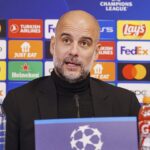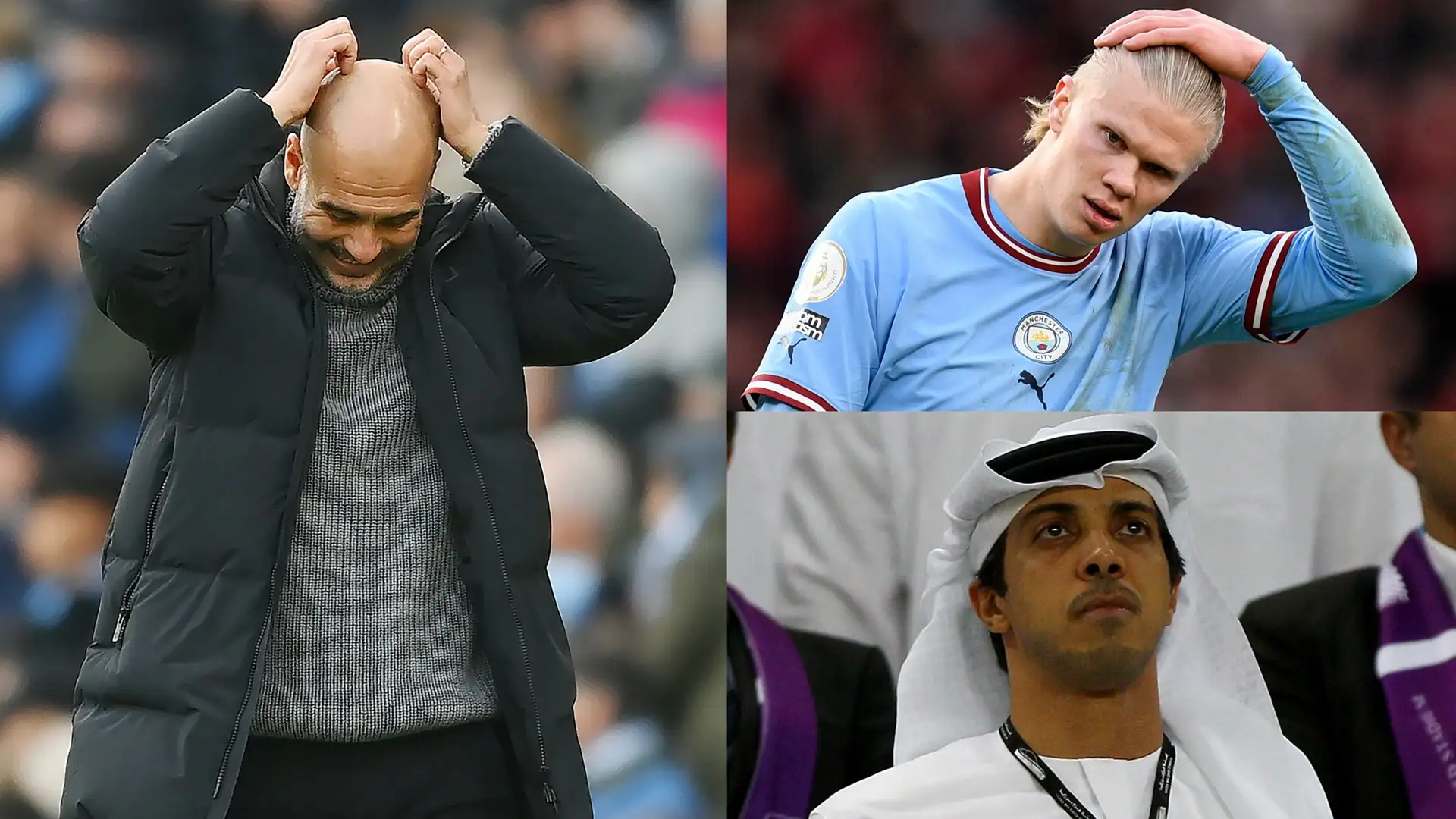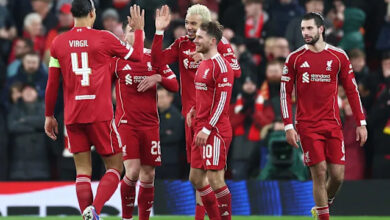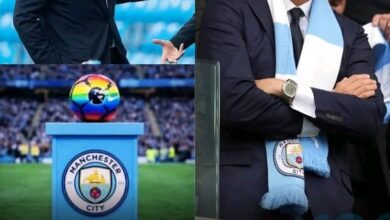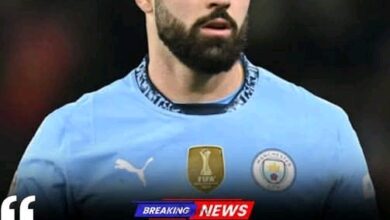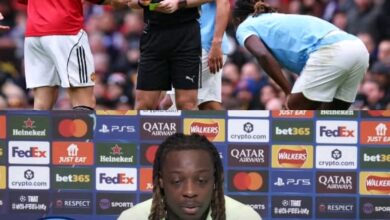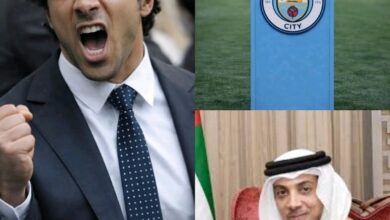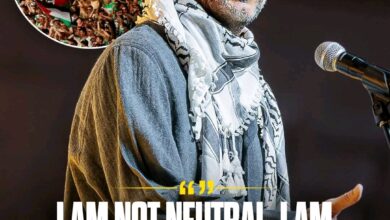The EIGHT Manchester City players out of contract in 2026 and what their futures hold
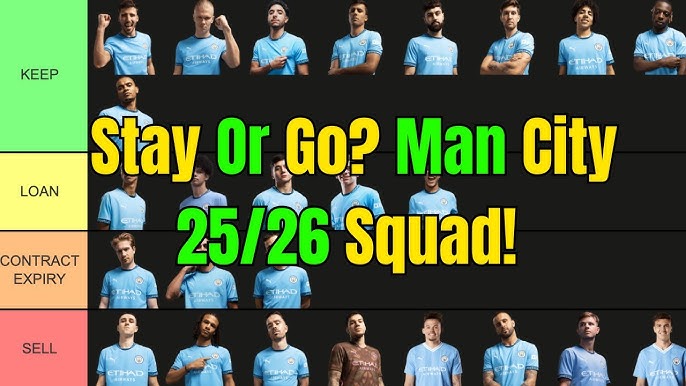
Manchester City find themselves at a pivotal juncture in their recent history, facing a series of crucial decisions that could reshape the squad for years to come. Under Pep Guardiola’s stewardship, the club has built a reputation for ruthless efficiency in the transfer market, consistently refreshing their roster while maintaining the highest standards of performance. However, the 2024-25 season marked a significant departure from their recent dominance, as they fell considerably short in their Premier League title defense despite entering as four-time defending champions.
This underwhelming campaign has prompted serious reflection within the club’s hierarchy, with particular attention focused on players entering the final year of their contracts in 2026. The summer of 2025 represents a critical window for City to make strategic decisions about these players, as it may be their last realistic opportunity to recoup substantial transfer fees rather than losing valuable assets for nothing.
The Goalkeeper Conundrum: Ederson’s Uncertain Future
At the heart of City’s defensive restructuring lies the question of Ederson’s future. The Brazilian shot-stopper has been nothing short of transformational since his arrival from Benfica in 2017, fundamentally altering how City play from the back. His exceptional ball-playing ability has been instrumental in implementing Guardiola’s possession-based philosophy, turning the goalkeeper position into an additional outfield player when building attacks.
Ederson’s statistics from the 2024-25 season tell a story of consistency despite the team’s struggles. With 40 appearances and 54 goals conceded, he remained Guardiola’s primary choice between the posts. His weekly salary of £100,000, totaling £5.2 million annually, represents reasonable value for a player of his caliber and importance to the team’s tactical setup.
However, several factors complicate Ederson’s future at the Etihad Stadium. At 31 years old, he’s entering the latter stages of his prime, though goalkeepers typically maintain their abilities longer than outfield players. The Brazilian’s contract situation becomes particularly intriguing when considering the persistent interest from Saudi Arabian clubs, who have demonstrated their willingness to offer astronomical wages to attract world-class talent.
The emergence of Stefan Ortega as a capable alternative has also added complexity to the situation. Guardiola’s occasional rotation between the two goalkeepers last season, while publicly attributed to tactical considerations rather than form concerns, has nonetheless created uncertainty about the hierarchy. This internal competition, while beneficial for squad depth, may influence Ederson’s long-term commitment to the club.
Should City decide to cash in on Ederson, they would need to secure a suitable replacement capable of maintaining their unique style of play. The challenge lies not just in finding a technically proficient goalkeeper, but one who can seamlessly integrate into Guardiola’s system as an additional distributor. This requirement significantly narrows the pool of potential successors and could make any transition particularly challenging.
The Midfield Veteran: Gundogan’s Determination
Ilkay Gundogan’s situation presents a fascinating study in veteran leadership and professional longevity. The German midfielder’s return to City after his brief Barcelona adventure demonstrated both his enduring quality and his deep connection to the club. His 53 appearances and 5 goals in the 2024-25 season, while perhaps not matching his peak output, showcased his continued value to the squad.
At 34, Gundogan represents experience and tactical intelligence that cannot be easily replaced. His weekly salary of £230,000 (£11.96 million annually) reflects his status as one of the club’s senior players, though questions inevitably arise about whether such investment in an aging midfielder aligns with City’s long-term strategy.
Gundogan’s public statements about his future have been unequivocal. His declaration that he has “one more year left on my contract and I’m very happy here” demonstrates his commitment to seeing out his current deal. His emphasis on physical fitness and availability, highlighted by his claim of not missing a game last season, suggests he remains confident in his ability to contribute at the highest level.
The midfielder’s role has evolved throughout his City career, adapting from a more box-to-box presence to a deeper-lying playmaker who can also operate in more advanced positions when required. This versatility makes him valuable to Guardiola’s tactical flexibility, particularly in crucial matches where experience and composure are paramount.
The Academy Dilemma: McAtee’s Crossroads
James McAtee’s situation encapsulates the ongoing challenge City faces in developing homegrown talent while maintaining competitive standards. The 22-year-old’s return from his successful Sheffield United loan spell represented an opportunity to establish himself in Guardiola’s first-team plans, but his 27 appearances and 7 goals suggest a player still on the periphery of the manager’s core group.
McAtee’s relatively modest weekly salary of £15,000 (£780,000 annually) reflects his status as a developing player rather than an established star. However, his goals-to-games ratio demonstrates his potential value, both as a squad player and as a saleable asset. The attacking midfielder’s versatility and technical ability make him attractive to numerous Premier League clubs and European sides seeking creative talent.
The decision regarding McAtee’s future is complicated by City’s recent history with academy graduates. The club has seen several young players flourish after leaving the Etihad, with Cole Palmer’s success at Chelsea serving as a prominent example. This pattern raises questions about whether City’s current structure provides adequate opportunities for young talents to develop or whether the pathway to first-team football remains too narrow.
From a financial perspective, McAtee represents pure profit potential, having come through the academy system. However, City must balance short-term financial gains against the long-term benefits of nurturing homegrown talent who understand the club’s culture and playing philosophy.
The Backup Goalkeeper: Ortega’s Contentment
Stefan Ortega’s situation provides an interesting contrast to Ederson’s uncertainty. The German goalkeeper’s 22 appearances and 24 goals conceded in 2024-25 demonstrated his reliability when called upon, justifying his weekly salary of £90,000 (£4.68 million annually). His willingness to accept a backup role while maintaining high standards has made him an invaluable squad member.
Ortega’s contract extension at the start of the 2024-25 season, taking him through to 2026, suggests mutual satisfaction with the arrangement. At 32, he represents experience and stability, qualities that are particularly valuable in the goalkeeper position. His comments about it being “too early” to discuss his future indicate a player focused on the present rather than rushing into long-term commitments.
The German’s situation may ultimately depend on what happens with Ederson. If the Brazilian leaves, Ortega could find himself elevated to the number one position, fundamentally changing his role and potentially influencing his contract negotiations. Alternatively, if Ederson stays, Ortega’s contentment with his current role suggests he would be happy to continue providing reliable backup.
The Tactical Architect: Silva’s Enduring Value
Bernardo Silva’s contract situation represents perhaps the most complex decision facing City’s hierarchy. The Portuguese midfielder’s 52 appearances and 6 goals in 2024-25 maintained his status as one of the club’s most reliable performers, though his weekly salary of £300,000 (£15.6 million annually) makes him one of the highest-paid players in the squad.
Silva’s situation is complicated by his enduring appeal to Europe’s elite clubs. His technical ability, work rate, and tactical intelligence make him an attractive proposition for any top-level team, while his age (turning 31 in August) suggests he still has several productive years ahead of him. The £50 million release clause in his current contract, agreed during his 2023 renewal, provides a clear valuation, though its relevance may diminish as his contract winds down.
The midfielder’s potential departure would represent a significant loss of experience and quality, particularly given Kevin De Bruyne’s move to Napoli. Silva’s ability to operate in multiple positions across the midfield and attack provides Guardiola with tactical flexibility that would be difficult to replace. His departure would also remove one of the few remaining links to City’s most successful period under Guardiola.
The Defensive Stalwart: Stones’ Uncertain Future
John Stones’ situation perhaps best illustrates the challenges of managing an aging squad. The English defender’s 20 appearances and 3 goals in 2024-25 represented a significant reduction from his peak involvement, largely due to injury concerns that have become increasingly frequent. His weekly salary of £250,000 (£13 million annually) reflects his importance to the squad, though questions arise about value for money given his availability issues.
At 31, Stones remains tactically astute and technically excellent when fit. His ability to step into midfield from defense has been crucial to many of City’s tactical innovations under Guardiola, while his experience in high-pressure situations makes him valuable in crucial matches. However, his injury record suggests that City can no longer rely on him as a consistent starter.
The club’s investment in younger defenders like Vitor Reis and Abdukodir Khusanov signals a recognition that change is necessary. While Stones’ experience and leadership qualities remain valuable, City must balance sentiment with pragmatism in deciding whether to offer him a contract extension or seek to recoup some value through a transfer.
The Academy Prospect: Simpson-Pusey’s Development
Jahmai Simpson-Pusey represents City’s commitment to developing homegrown talent, though his situation differs significantly from the more established players. The 19-year-old defender’s 6 appearances in 2024-25 provided valuable experience, while his modest weekly salary of £6,000 (£312,000 annually) reflects his developmental status.
Simpson-Pusey’s decision to remain at City rather than pursue a loan move last season demonstrated his commitment to learning from Guardiola and his teammates. However, the club’s investment in defensive reinforcements may limit his opportunities for meaningful playing time, potentially necessitating a loan move to continue his development.
The New Arrival: Bettinelli’s Supporting Role
Marcus Bettinelli’s arrival from Chelsea represents a straightforward squad addition, replacing the departed Scott Carson as third-choice goalkeeper. His one-year contract reflects his role as an experienced backup rather than a player with long-term ambitions at the club.
Strategic Implications and Future Planning
City’s contract decisions in the summer of 2025 will significantly influence the club’s trajectory for the next several years. The challenge lies in balancing the desire to maintain competitive standards with the need to refresh an aging squad and manage financial resources effectively.
The potential departure of several key players could provide opportunities for younger talents to establish themselves, while also freeing up resources for strategic acquisitions. However, replacing the experience and tactical understanding of players like Gundogan, Silva, and Stones will require careful planning and potentially significant investment.
City’s recent history suggests they will not hesitate to make difficult decisions if they believe change is necessary. The club’s success has been built on the willingness to evolve and adapt, even when it means parting with popular and successful players. As they face these crucial decisions, City must maintain this ruthless efficiency while ensuring they retain the core qualities that have made them so successful under Guardiola’s guidance.
The summer of 2025 may well be remembered as a pivotal moment in Manchester City’s recent history, as they navigate the delicate balance between honoring their successful past and building for an uncertain but ambitious future.
